Indie Roundtable – The State of Touring In 2023
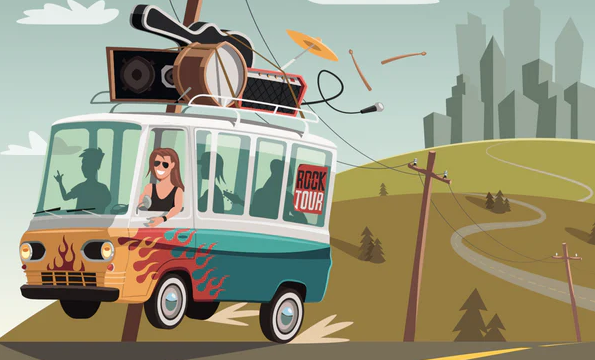
In 2022 a number of indie artists cancelled tours, saying hitting the road has become too expensive.
Everyone is feeling the effects of inflation, and the cost of filling up a tour van at a gas station is still incredibly high, but what are some of the other problems indie artists are running into when attempting to tour?
I sat down with three indie record label founders – Blake Morgan of ECR Music Group, Jake Palumbo of SpaceLAB Recordings, and Matt Flood of Asbestos Records – to get the full story on the biggest issues affecting touring for indie bands/artists. They also discussed the most reliable metrics to help determine where an artist has an audience, and what an artist needs to think about before booking a tour.
Last year quite a few indie artists cancelled tours, saying touring has become too costly. Other than inflation, and gas prices still being high, what are some of the new added costs of touring?
Jake Palumbo: I don’t know that touring has necessarily become more expensive, outside of higher cost of travel, and inflation making your dollar weaker. I think that a better way to frame it is that touring has become “too financially risky” for many artists. I think your logistical costs are probably similar, it’s just today your chances of having a low turnout are much, much higher.
We’ve all pretty much done shows for three people and the bartender, and we’ve all played to big houses. A “normal” tour would usually have some type of mixture of both, and hopefully you land in the middle somewhere – maybe you lost money on shows #1 and #2, but on show #3 you walked out with a big purse.
A LOT of different factors – whether it’s economic strain, COVID restrictions, venues closing, shows being forced to move into non-traditional venues, etc. – make it really difficult to fill up a room nowadays.
Today I just think you have a much higher chance of playing to a small crowd, and a much lower chance of a packed house. Even shows with “name” headliners are averaging lower attendance these days. In the past, if an act had low ticket sales, promoters would say they aren’t a “draw.” Side note – I f*cking hated that term. Despite the fact I have no delusions about the fact that warm bodies are required to make live shows continue, the term “draw” was often used by promoters to degrade or underpay you. Today I don’t think low ticket sales can be blamed on your “draw.”
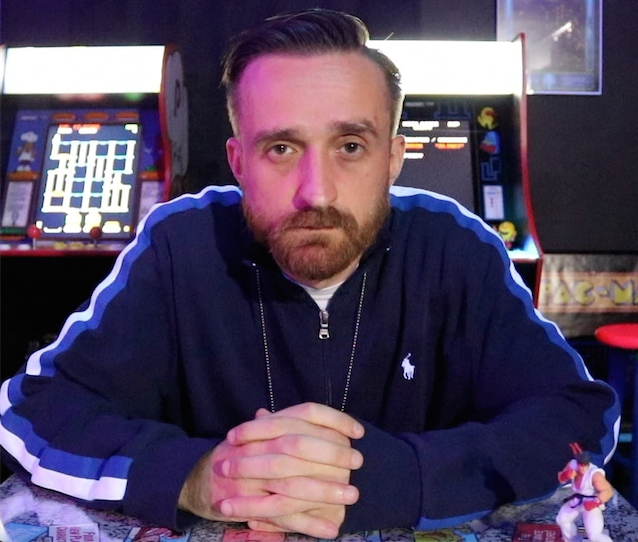
Some artists, and bands, can survive a few bad, or low-to-non-paying shows during a tour. Many just can’t afford to do it repeatedly, night-after-night across the United States.
Matt Flood: Image. Especially in recent years it feels like bands, especially mid-tier and lower, are going all out on image marketing, whereas we grew up on a generation of bands who were extremely minimalist in terms of fashion/stage show/touring.
Watching a band pull up to a basement show in a tour bus, or a band getting $20 for gas money unloading stage scrims, banners, and a crew of techs, makes my head hurt.
Also, making sure that you are in a position where you actually need a manager/agent/tour manager, and not paying for one before you do.
On a lot of these tours the tour manager and booking agent are making more money than any member of the band, and that is really something to take into account. I’ve had plenty of anecdotal evidence from bands who have played seemingly successful tours end up in the hole after paying staff and expenses. It’s a full time job, and sometimes you’re just going to have to do more than just play your instrument.
I think there’s two other major concerns here, too.
* Post-COVID everyone is touring, so you’re competing not only for dates, but on every date you do get there will be other options in that market. When the 300lb gorillas of your genre – i.e Taylor Swift, Blink 182, My Chemical Romance, and all the giant festivals – drop $300 tickets for massive tours, there’s only so much money to go around. Not to mention festivals having huge distance clauses stopping a lot of bands from being able to play the prime B and C markets for a few months in each direction, there’s a lack of decent support slots for baby bands.
* We’re not post-COVID. I, personally, have had a good handful of shows I bought tickets for cancelled, and a few I had to fight for refunds. There’s also been shows that have come up, and the numbers didn’t look favorable, so I stayed home, and ate the tickets.
I think a lot of people have adopted a wait and see stance, and are buying at the door if they decide to go.
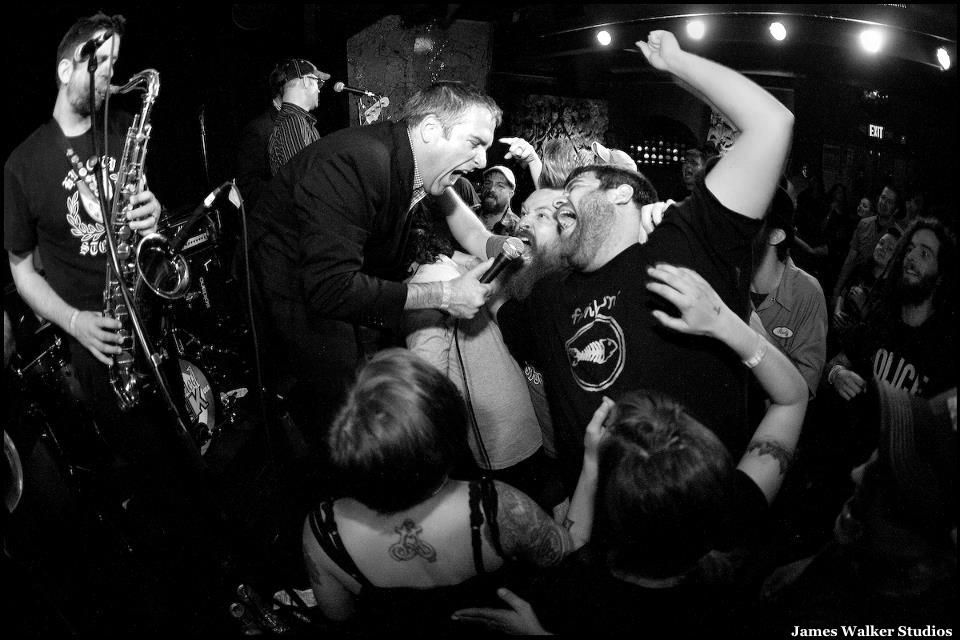
Personally, I’m not grabbing tickets for anything I know won’t sell out, because I don't want to get burned for $100 if I can't make it.
Blake Morgan: COVID’s repercussions still proliferate: cancellations – from venues, audience members, artists, each and all – all drive the costs of touring up.
I was fortunate to have had several sold-out shows this autumn in NYC, and on the West Coast and East Coast runs I’ve just completed, but the volatility of the COVID-prevalent world we still live in is a downward pressure on all of it economically.
Has social media and streaming warped artists’ ideas of their level of popularity, and where they should tour?
Blake Morgan: Yes. Likes are not equal to asses in chairs at concerts. Streams do not pay bills. Emojis are not indicative of a real connection with an audience.
The size of one’s online audience is important, more so than ever, but it’s not a real-world indication of the size of one’s actual audience.
Matt Flood: There’s been a ton of research into the Twitter effect.
Twitter is one of the smaller of the big boy social media sites, but seems to be one that’s most often viewed for entertainment buzz. This throws off the reality of the situation by a good deal, where a few fans – or marketing plants – can make a huge buzz that doesn’t accurately show the picture.
The case I saw used was Yellowstone, which is a ratings beast on TV right now, but there’s almost no mention of the show on Twitter, while other weaker performing shows are constantly trending. Also, Twitter would have us believe movies like Venom 2 were huge flops, while they made tons of money.
Jake Palumbo: Warped the idea of popularity? Absolutely. Very, very few artists realize that followers do NOT automatically equal fans, especially fans willing to travel to see them on a weeknight, and plop down money on tickets, merch, beers, a babysitter, a new outfit, etc. We often forget that our audience has a cost involved in these things as well.
As for where they should tour, I actually think it’s helped a lot. Social media, and streaming’s analytic tools are super helpful for seeing where your traffic is coming from. If you can read and digest information at even a basic level you can see where you definitely do have listeners vs. where you definitely do not, what the trends are, what records are more popular in what areas, and tons of other useful info.
My social media and streaming analytics pretty easily tell me – random example – that it’s probably useless to try and get booked in Miami, but in Portland, ME I might be able to draw 50-100 people on a Tuesday, and if I can ever manage to get booked across Western Europe I’ll probably come home from the tour with pending paternity suits.
I’m saying all that to say this is very helpful info we didn't have access to before. Years ago, many acts would have to find out the hard way that they are wildly unpopular in (a particular city). You only found out AFTER you'd made the drive, spent the money, and played to no one. I definitely think it helps in planning logistics.
Are there other reliable metrics to help determine where an artist has an audience?
Blake Morgan: Asses in chairs, and money in one’s bank account.
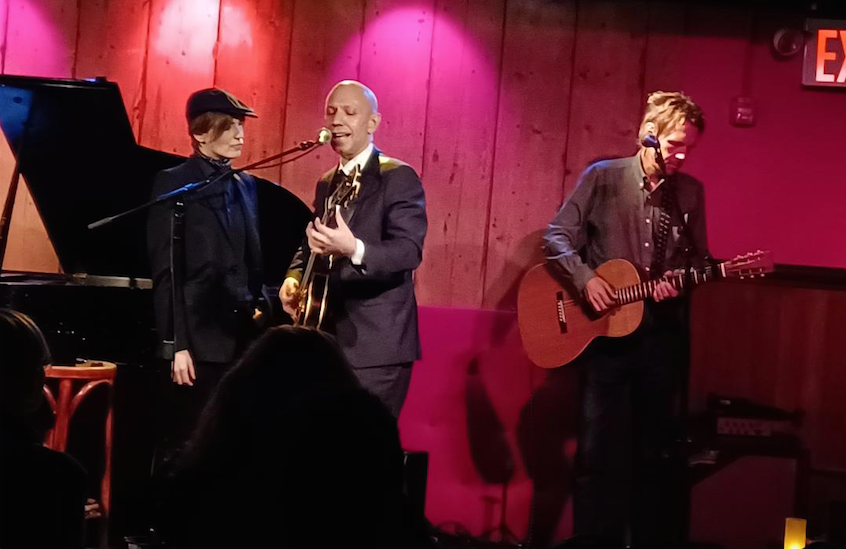
Jake Palumbo: I think past experience is maybe the most reliable metric. I’ve never had a show in Tucson, or Phoenix, AZ that wasn’t AWESOME – well attended, well paid, fun crowd, merch moved, the venue fed us and took care of us, locals were cool, etc. Anyone who wants to book me in those towns doesn’t have to ask twice. Meanwhile my experiences in Austin, TX have almost always been a disaster, and it would definitely require a guarantee of a month’s rent for me to go back.
But since no one can say they’ve played everywhere, and some artists may just be starting out, if you don’t have previous experience to gauge things, I would study your analytics online, speak DIRECTLY to your audience – easy with social media, and mailing lists – see who speaks up the loudest about wanting to see you in their city, and just do your best to make educated predictions.
Again, Spotify plays, or social media likes do not equate to gauging paid ticket sales, but it can give you a decent starting point. When in doubt, though, speak directly to your followers, and see where they are, and who seems most enthused by the idea of you visiting.
Matt Flood: Previous ticket sales, and physical merch purchases online are still the best metrics, as those are legitimately real people spending real money.
Streaming service demographics are a decent reference, as well, but I would say to only use those for non-single tracks, and not for songs appearing on high play generating playlists, so you have a better picture of people listening to your albums, and not just randomly hearing the track.
Should an artist tour if they aren’t sure if they’ll break even? Would they still stand something to gain from being on the road, in new cities?
Matt Flood: I think this really depends on the artist, their goals, and their ability to take a loss for the audience building.
Previously, touring, and (music) videos were a loss leader in order to push album sales, now albums are basically ads to sell tickets to live shows.
Also, is your art a hobby, or a real profession? That’s a really tough question to breach with most people. No one wants to admit that they’re basically going on tour as an avant garde camping trip.
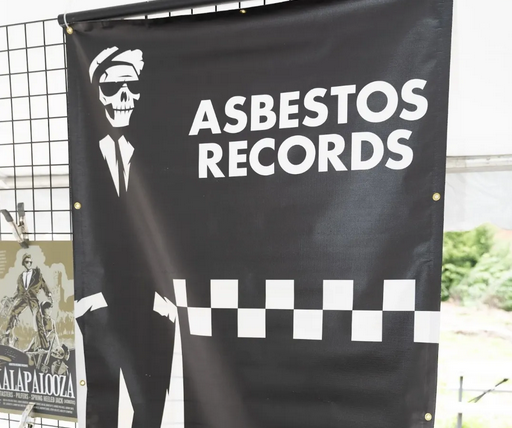
Blake Morgan: That’s a case-by-case determination that has to be made by an artist. No artist is in exactly the same place as another. For some there could be a lot to gain, for others nothing at all.
The one thing relentless touring will do for an artist who is interested in getting better at their craft is that they will get better at their craft.
Jake Palumbo: So here’s the thing – most people are going to say no, it’s not a good idea, and I honestly can’t say they’re incorrect, BUT, similar to streaming, I don’t view touring so much as a money maker, but as a fan builder.
For me, the live show has probably converted more strangers to fans than any other means of communication. The conversion rate is higher than social media, and music videos combined. If we see someone live, and they kill it, we are 10x more likely to go seek out additional information about them once the show is over, whereas traditional means of marketing require many, many repeated impressions to make way less of an impact.
Also, touring builds character in an artist –- whether it’s improving your stage show, how you interface with your audience, or building survival skills like how to survive technical hiccups, or how to turn around a show that’s not going well. There are invaluable skills that get built on the stage, and on the road that cannot be skipped over just because it’s not profitable at the time.
I did a show in November that was four states / six hours away. I got paid $250 for the show. My travel and lodging cost about $400, so it was definitely not profitable, however, I took the show at this low rate for two reasons …
* The promoter is a good dude, who has booked me many times before. This is a new venue he’s starting out with, so he had less money to work with. Playing ball this time might get me booked for more money later, or at the very least just booked again.
* I know for a fact – both from real-life experience playing (in the area) before, and from my internet analytics – that I have fans in this area, and I would benefit from those fans seeing me in person for the first time since the pandemic began.
So I didn’t make money, BUT – aside from having a good show, and lots of beer – I was tied up taking pictures with locals for almost an hour, and a guy I signed a CD for in the same state in 2017 showed up with a picture showing me that my autograph is still on his wall.
They got a reminder that Jake Palumbo rocks with their small town, and is down with them, and Jake Palumbo got a real-life reminder there are people in other places who genuinely care about what he does, and I guarantee they will continue to keep up with me online.
Much like a politician, I think making the trek strengthened my approval rating with “voters” in the area, so the experience was worth more than the $150 I ultimately lost on the trip.
Are there any other ideas indie artists should consider looking into in regards to touring?
Jake Palumbo: Being that (if you’re an indie artist) you probably don’t have a real booking agent – don’t feel bad, none of us do, and there’s probably less than 100 left in the entire industry, I would guess – I think one of the easiest ways around the hurdle of not being able to get booked in places is what I call “show trades.” It’s a relatively simple concept, but it does require some relationship-building on your part.
STEP 1: Make friends with artists in your genre in another city. Like actually make friends with them, don’t just use them for connections.
STEP 2: When they have a local show in their area that has an open slot, they book you in that slot.
STEP 3: You eventually return the favor when you have a local show in your area, with an open slot.
Most of the time you’re going to be on the opening end of the card, but ya gotta pay dues, and it’s one of the easier ways to get booked out of town.
A bar or venue owner across the country isn’t going to know much about you, but a local artist who has the respect of their peers can vouch for you, and since you’re just one slot on a show that’s hopefully padded with other locals who do have “draw,” you should be OK. It’s probably the easiest way to get out of town bookings without wasting money, or driving yourself insane sending emails to venues that don’t get returned.
Blake Morgan: The central thing, in my opinion, is, “What is the goal I’m trying to achieve” with touring, with anything.
Most artists are put in a position – or think they’re in a position – where they’re trying to do lots of things because they think the alternative is doing nothing, instead of thinking of it as, “I’m going to only do the things that work, and nothing else.”
When I don’t know what to do, I don’t do anything until I do know what to do. It’s the best tool I have. Patience is also a form of action.
I see artists confuse “motion” with “action” constantly, and with my own artists I’m constantly trying to turn their motion into action – directed, purposeful, smart.
Indie artists have to act smarter than others, and be clearer than most about where they want to go, and why. In short – you can’t get what you want until you know what you want, and, “I want more than what I have” is not an answer to that question.
Where do you want to get to? Why? For what reason?
Once you have answers to those questions, one can start to figure out how to achieve something.
Matt Flood: I think a lot of acts need to have a serious examination of why they want to tour, and what they expect. Realize that initial tours will lose money, most likely. Realize that you can mitigate some of the loss by being smart, and being willing to suffer a bit.
Sleeping on a friend’s/fan’s floor isn’t nearly as nice as staying in a hotel, but you can save a few hundred a night, and maybe score a free meal.
Securing a van/camper is way cheaper in the long run than having to rent a van/bus all the time if you’re going to be touring regularly. Hell, renting a van, and getting a few hotel rooms a night is still way cheaper than a bus.
Utilizing your rider for groceries instead of alcohol is a huge money saver over time.
Learn to multitask for your own band. Being able to be your own tour manager, and do your tech yourself is very important.
Limit unnecessary spending on booze.
With the recent big switch to remote working, being able to maintain a day job that you can do by hot-spotting your laptop to your phone instantly makes touring a whole lot more affordable, and kills a lot of downtime.
Basically, be smart. I don’t want to sound like I’m undermining touring musicians, but it’s reality – for most it’s a hobby, maybe a lucrative one, but if you want to treat it as a legitimate business you have to act like it’s one, and cut costs everywhere you can to make sure you can come home with money in your pocket for your hard work.
For more info on the labels whose founders took part in this roundtable, please check out the websites for ECR Music Group, SpaceLAB Recordings, and Asbestos Records.

Comments